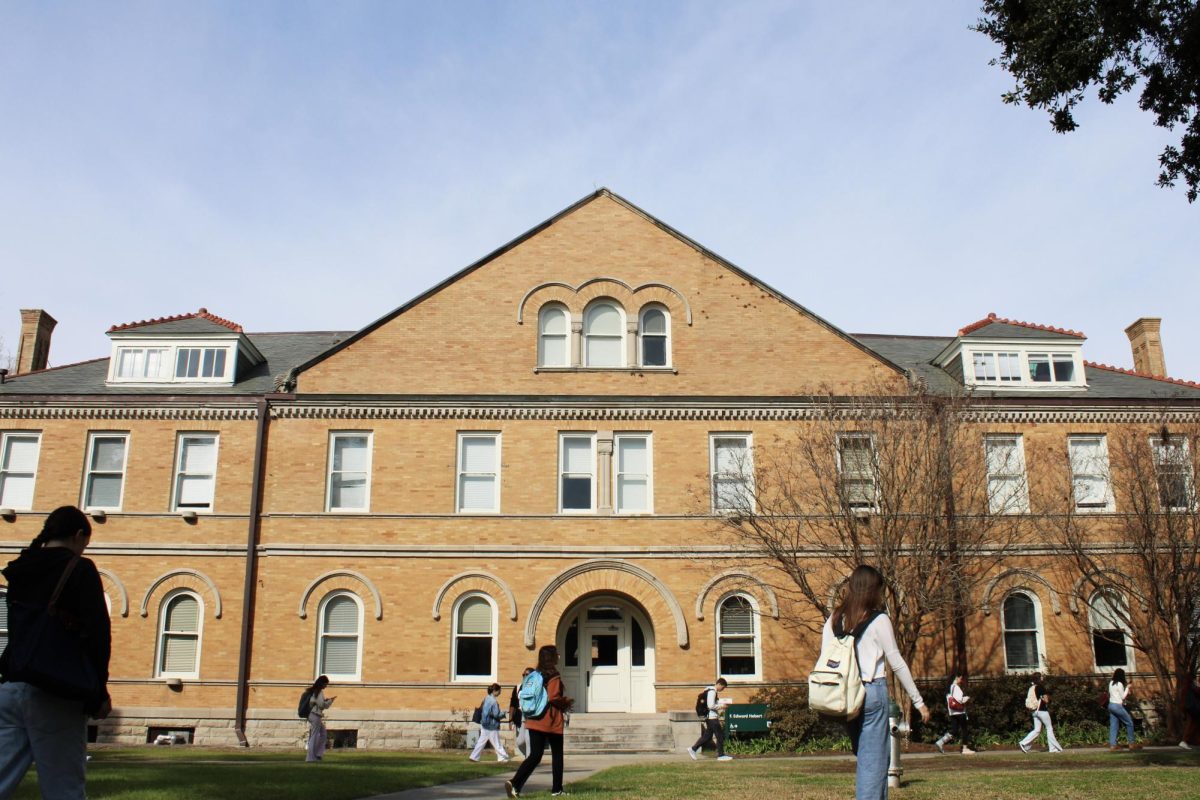Controversy about the name of Tulane University’s F. Edward Hébert Hall emerged with the building’s naming in the 1970s and persists today. This academic building, the home of Tulane’s Department of Africana Studies and Department of History, is named after a former United States congressman and outspoken segregationist. During his time serving as a politician, Hébert joined the state’s rights Dixiecrat revolt in support of his prejudiced views.
Despite notable student efforts to rename the building in 2017, current Tulane President Mike Fitts released a statement that such a change is impossible. Fitts explained that no consensus could be reached to modify the legal requirements of the property’s name. Instead, the university added posters around the building, featuring context surrounding Hébert, his legacy and the history of the hall.
The Tulane website explains that the university “must be an equitable, diverse and inclusive community that welcomes and supports a diverse array of students, faculty and staff.” The statement expands on this idea by stating that the Tulane community “must foster an environment where each member of our academic family, particularly our Black, Indigenous, and People of Color and other underrepresented members, are not only supported but are able to thrive.”
Tulane’s decision to honor the legacy of a man who spoke out against racial equality calls into question whether Tulane is doing everything in its power to uphold its value of building an inclusive community.
Administrators violate principles of equity by expecting students to learn and grow under a roof named after a man who did not believe all people should be treated equally. Tulane and its students cannot move towards a more equitable future if the school’s racist past continues to be honored.
However, the university’s failure to change the name of Hébert Hall does not reflect the administration’s lack of effort to do so. In 2022, Tulane opened negotiations with the Hébert family in hopes of renaming the building. However, they could not do so because of the contract signed at the time of Hébert’s donation. No information about efforts to continue the negotiation has been publicized. Despite the enforced contract, the Tulane administration must continue the discussion to work towards the change their students advocate for.
The diversity, equity and inclusion agreement on Tulane’s website concludes by stating, “over the past several years, we have made great progress together, but we know we must do more.” Perhaps the “more” the university is referring to can be executed in relation to F. Edward Hébert Hall. Simply printing the context and history of the building does not erase the legacy of the building’s name. Tulane must not give up on its fight to continue to change the name of F. Edward Hébert Hall to truly complete their mission of creating an inclusive environment where all students feel welcome and encouraged to grow, learn and thrive.
Correction: in The Hullabaloo’s Jan. 29 print edition, the photo of Hébert Hall was mistakenly credited to Zach Kempin. The actual photographer was Anna Skerrett.



